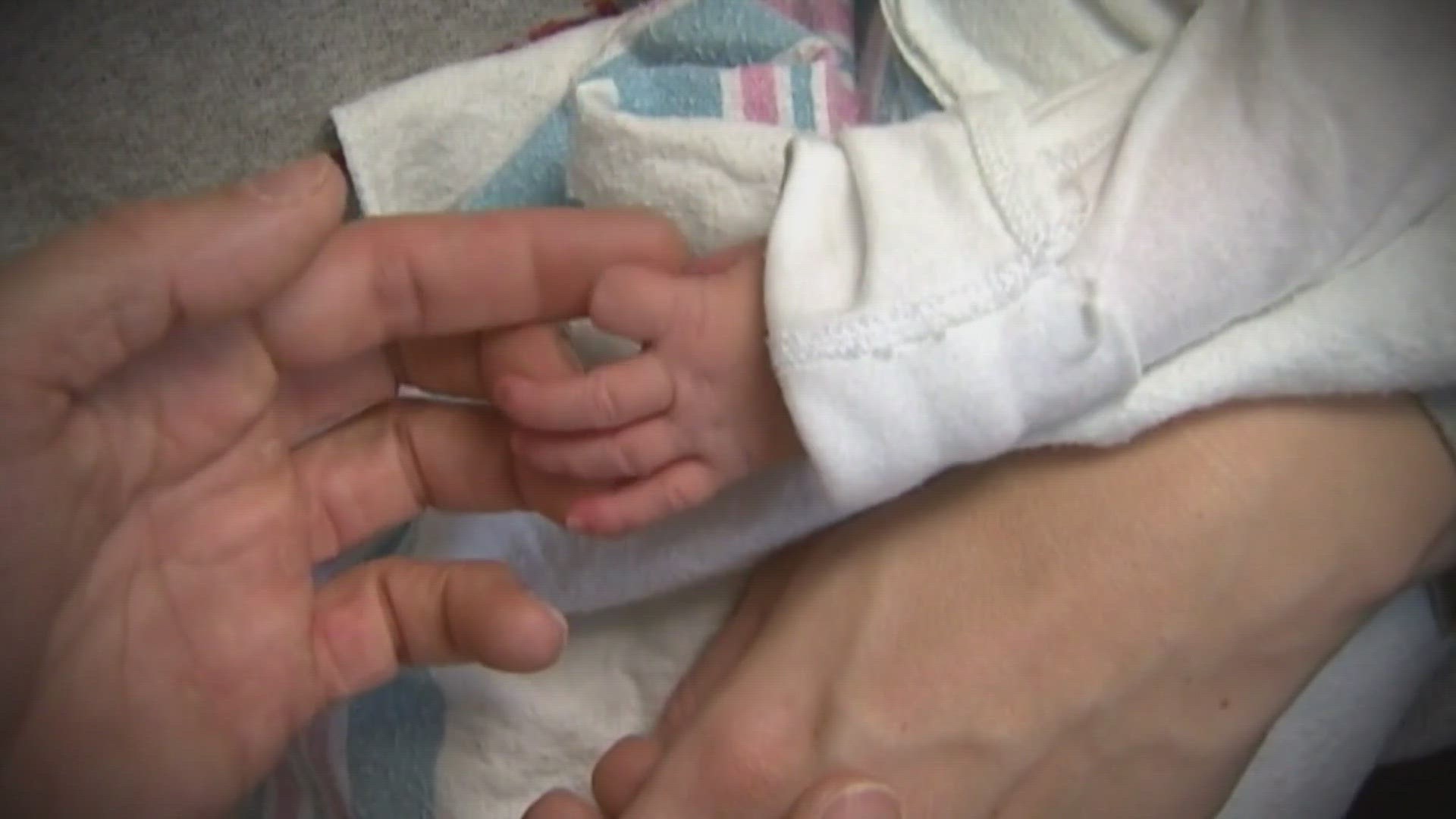AUGUSTA, Maine — "We have the potential to pass the most collaborative, and the most comprehensive paid family and medical leave policy in the entire country," Rep. Kristen Cloutier, D-Lewiston, said during a news conference outside the Maine State House on Thursday.
Cloutier is one of the sponsors, alongside Sen. Mattie Daughtry, D-Brunswick, for a bill to establish paid family and medical leave in Maine.
"Our workers need it, our families need it. Our businesses need it, the question is how to do it. And a program of this importance requires teamwork, time, and diligence," Daughtry said.
According to the proposed bill, if approved, the bill would implement a paid family and medical leave benefits program based on the recommendations of the Commission to Develop a Paid Family and Medical Leave Benefits Program.
The program would provide up to 12 weeks of family or medical leave for eligible individuals. The maximum weekly benefit amount would be capped at 120 percent of the state's average weekly wage and would be roughly 90 percent of the individual's average weekly wage.
The bill also would establish a Paid Family and Medical Leave Insurance Fund to support the program and be funded by payroll contributions of up to one percent of wages, shared by employers and employees. Employers with fewer than 15 employees wouldn't be required to contribute to the program.
A Paid Family and Medical Leave Benefits Authority would also be created to support the implementation and administration of the program.
"You have to craft a policy that's workable for not just the employees, but the employers, and we don't think this works for employers," Peter Gore, a consultant working with the Maine State Chamber of Commerce, said.
The Maine State Chamber of Commerce is opposed to the proposed bill. Gore said it will have negative impacts on Maine's business community, particularly small businesses.
"This would impact every business in the state of Maine regardless of size, those businesses have no experience with family medical leave, paid or unpaid. They don't have HR professionals to help them with it, the owner is the HR professional," Gore said.
Some Maine Republicans are also concerned with the proposed bill, including Senate Minority Leader Trey Stewart, R-Presque Isle.
"As the labor market tightens, the need to be more competitive in the labor market increases, and so I think letting the private sector figure out a way to move forward there makes a lot of sense," Stewart said.
Others, however, say from personal experience, having a loved one available to care for them is crucial during challenging times.
"It's worth the investment to maintain the workers that they have by enabling them to take the time off that they need and then come back and continue working," Becca Scarborough said.
Scarborough said when she was in the hospital and navigating health challenges that led her to have a stroke, her mother was able to take off work and support her throughout the process. She hopes other Mainers can experience that, too.
"It was such a godsend to have her just be with me in the hospital when the nurses weren't able to be there, and later when I was released she helped me with daily living activities," Scarborough said.
If the bill were to be approved, payroll contributions would begin in 2025, and benefit claims would begin to be processed in 2026.

